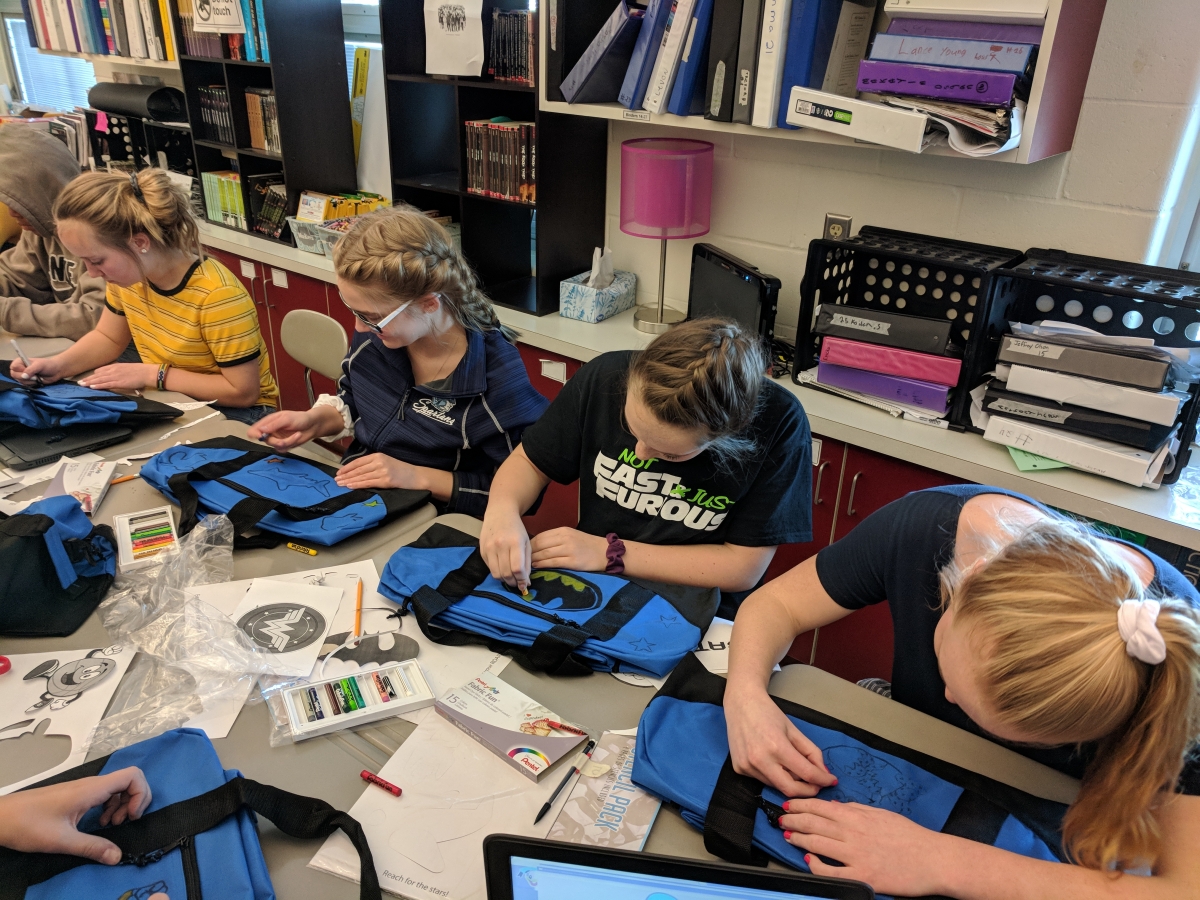Amanda Lindquist, an 8th-grade English teacher at Superior Middle School, did not plan for students to spread 900 sticky notes with positive messages around the entire building. However, when she charged her students with standing up to hate and allowed them to take the lead, they covered the school with kindness.
“I told the kids, I’m going to challenge you to be kind,” Lindquist said. “They came up with lots of ideas.” This is just one way Lindquist helps students see school in a different way.
Lindquist uses professional development days and her own time to learn about Adverse Childhood Experiences (ACEs). This training, along with collaborative efforts with the school guidance counselor, help her work with students within the English language arts curriculum, and with each other. While some kids haven’t gone through adverse experiences, some have lived several, and helping students understand how those experiences impact each other can be beneficial.

Now, random acts of kindness live within the curriculum, creating meaningful learning experiences with real audiences for students’ work. They write proposals for their projects, prepare scripts to talk with community members, and plan for guest speakers.
Students participate in several field trips, read texts that they can connect with, and reach out to their community as part of their English language arts coursework. “I have an awesome team that I work with, so we share the load,” Lindquist says. “We’ve been good about finding ways to make it work.”
Lindquist and her team apply for grants, put out requests for local donations, and have had luck with getting speakers to present for free. One of the most memorable experiences they had was securing a grant through the Wisconsin Humanities Council to have a Holocaust survivor speak with students.
“Seeing how they make connections between things they’ve done earlier in the year and things they’re doing now, I feel they’re really getting it. They're’ actually getting their work done too because they’re engaged, they are interested, they want to get the work done,” Lindquist says.
The work they do in class keeps the momentum going beyond curriculum requirements. Students continue to come up with ways to give back to their community each year. One group of students made tie blankets, sold them, and then donated the money to get Sweet Cases for children in foster care. Students decorated the bags that are filled with toys, supplies, and a blanket before donating them to Douglas County foster care.

Creating a space for academics is important. Nurturing that space through building relationships with each other and the surrounding community can broaden those academic experiences. Lindquist agrees. “If you challenge them, they rise to the challenge.”